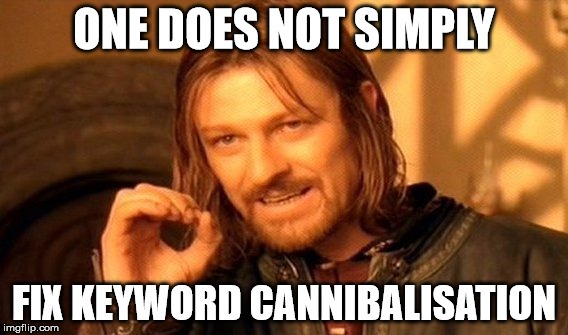Keyword cannibalisation happens when different pages of the same website target the same keyword/s. This confuses the search engines because they are torn between which specific pages to rank for every query. With keyword cannibalisation, there is a risk of getting undesired or wrong page ranking.
The impact of this is lots of frustration to website owners because of detrimental effects on site’s ranking, traffic, and even conversions.
Table of Contents
What are the main causes of keyword cannibalisation?
The main cause of the keyword cannibalisation is site’s internal information architecture. However, it can also result from the following causes.
Adding new content via blog or landing pages that target identical keywords
For many website owners, the argument is that all the new content will simply drive a lot of traffic. This is a great misconception that often brings converse effects diluting all the efforts you had put on SEO.
By simply adding content that targets the same keywords, you devalue all the internal linking efforts because of link equity concentration and poor consistency. You will also experience dwindling quality of every piece of content added on the website as the creator targets covering similar subjects over time.
Websites with page categories of the same nature
If you have similar category pages, there is high probability that the main concepts will be similar and share same keywords. To avoid this issue and get the right page ranking, it is prudent to think of structuring the content and carefully implementing keyword targeting. You have to insist to the search engines that all the category pages are related to specific areas of the business even when the theme is related or very close.
Internal website duplicate content problems
If you have recently implemented a site CMS configuration, the risk of multiple pages URL with similar content is always high. In such cases, you need to use canonical tags that tell the bots which pages they should rank and index.
Strategies for solving keyword cannibalisation
Before setting out on a mission to address the problem of keyword cannibalisation, you will need first to establish the problem.
You should consider carrying a comprehensive technical audit of the site with appropriate crawling tools. These tools help identify issues with duplicate content that can be addressed using 301 redirects.
Running a technical crawl can also provide an opportunity to look at all internal links and their architecture. Make sure that you are pointing to pages that you want to rank with the right anchor text.
Elements such as body copy, heading, title tag, and page URL can all cause cannibalisation. You need to consider them when reviewing every page to ensure that they are unique and appropriate signals are communicated to the search engines for appropriate ranking. Add canonical tags or 301 redirect the keyword cannibalised pages.
When you work on blog posts, the focus should be formal topics with an objective of getting long-tail traffic as opposed to focusing on exact terms used on the website pages.
Conclusion
From an SEO perspective, site owners and brand managers approach to improving online marketing can often land their efforts to keywords cannibalisation. It is very important that both webmasters and copywriters cooperate when generating content to ensure that every keyword is unique. The process will help to guarantee the internal/external linking efforts are carefully made to improve domain and website traffic.

